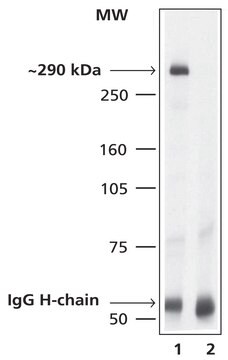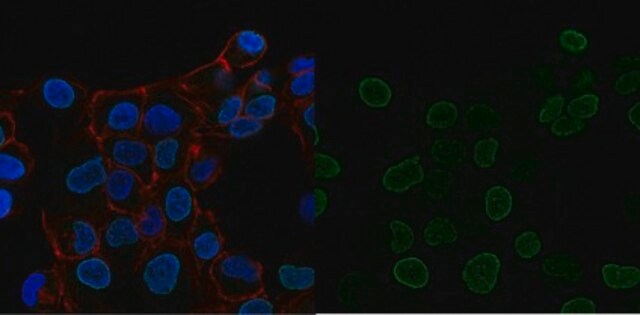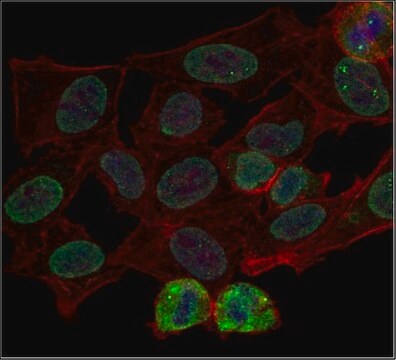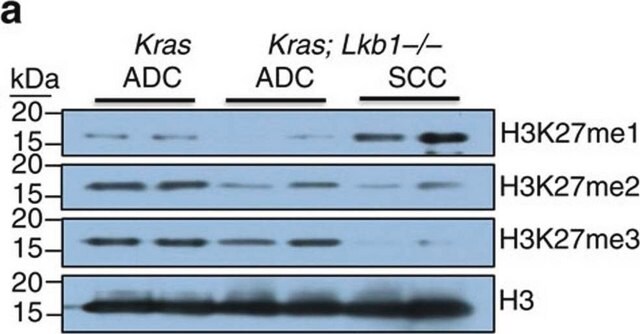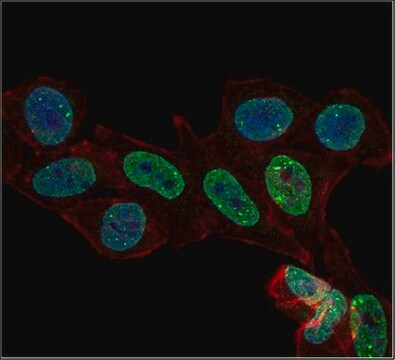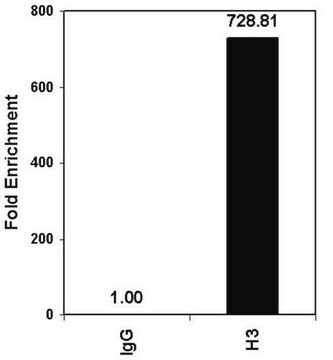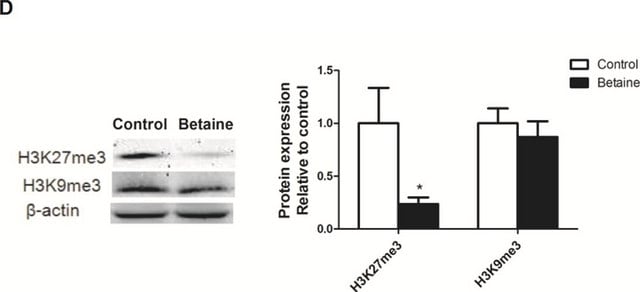07-473-AF488
Anti-trimethyl-Histone H3 (Lys4) Antibody, Alexa Fluor™ 488 Conjugate
from rabbit, ALEXA FLUOR™ 488
Synonym(s):
H3K4me3, Histone H3 (trimethyl Lys4), H3 histone family, member T, Histone 3, H3, Histone cluster 3, H3
About This Item
Recommended Products
biological source
rabbit
Quality Level
conjugate
ALEXA FLUOR™ 488
antibody form
affinity isolated antibody
antibody product type
primary antibodies
clone
polyclonal
species reactivity
mouse, human
species reactivity (predicted by homology)
vertebrates (based on 100% sequence homology)
technique(s)
immunocytochemistry: suitable
NCBI accession no.
UniProt accession no.
shipped in
wet ice
target post-translational modification
trimethylation (Lys4 )
Gene Information
human ... H3C1(8350)
mouse ... H3C1(360198)
General description
Specificity
Immunogen
Application
The unconjugated version of this antibody has been shown to work in ChIP, DB, WB, ChIP-seq.
Epigenetics & Nuclear Function
Nuclear Receptors
Quality
Immunocytochemistry Analysis: A 1:100 dilution of this antibody detected trimethyl-Histone H3 (Lys4) in HeLa cells.
Target description
Physical form
Storage and Stability
Other Notes
Legal Information
Disclaimer
Not finding the right product?
Try our Product Selector Tool.
Storage Class Code
10 - Combustible liquids
WGK
WGK 2
Flash Point(F)
Not applicable
Flash Point(C)
Not applicable
Certificates of Analysis (COA)
Search for Certificates of Analysis (COA) by entering the products Lot/Batch Number. Lot and Batch Numbers can be found on a product’s label following the words ‘Lot’ or ‘Batch’.
Already Own This Product?
Find documentation for the products that you have recently purchased in the Document Library.
Our team of scientists has experience in all areas of research including Life Science, Material Science, Chemical Synthesis, Chromatography, Analytical and many others.
Contact Technical Service

